Providing Support Through Counseling for Siblings of Children with Disabilities


Understanding and Supporting Siblings of Children with Disabilities
Growing up alongside a sibling with a disability profoundly influences a child's emotional, social, and psychological development. As families navigate complex family dynamics, it becomes crucial to recognize the unique needs of these siblings and explore effective counseling and support strategies. This article delves into the emotional and social needs of siblings, examines available psychosocial interventions, and highlights how tailored programs and advocacy efforts can foster resilience and understanding.
Emotional and Social Needs of Siblings of Children with Disabilities
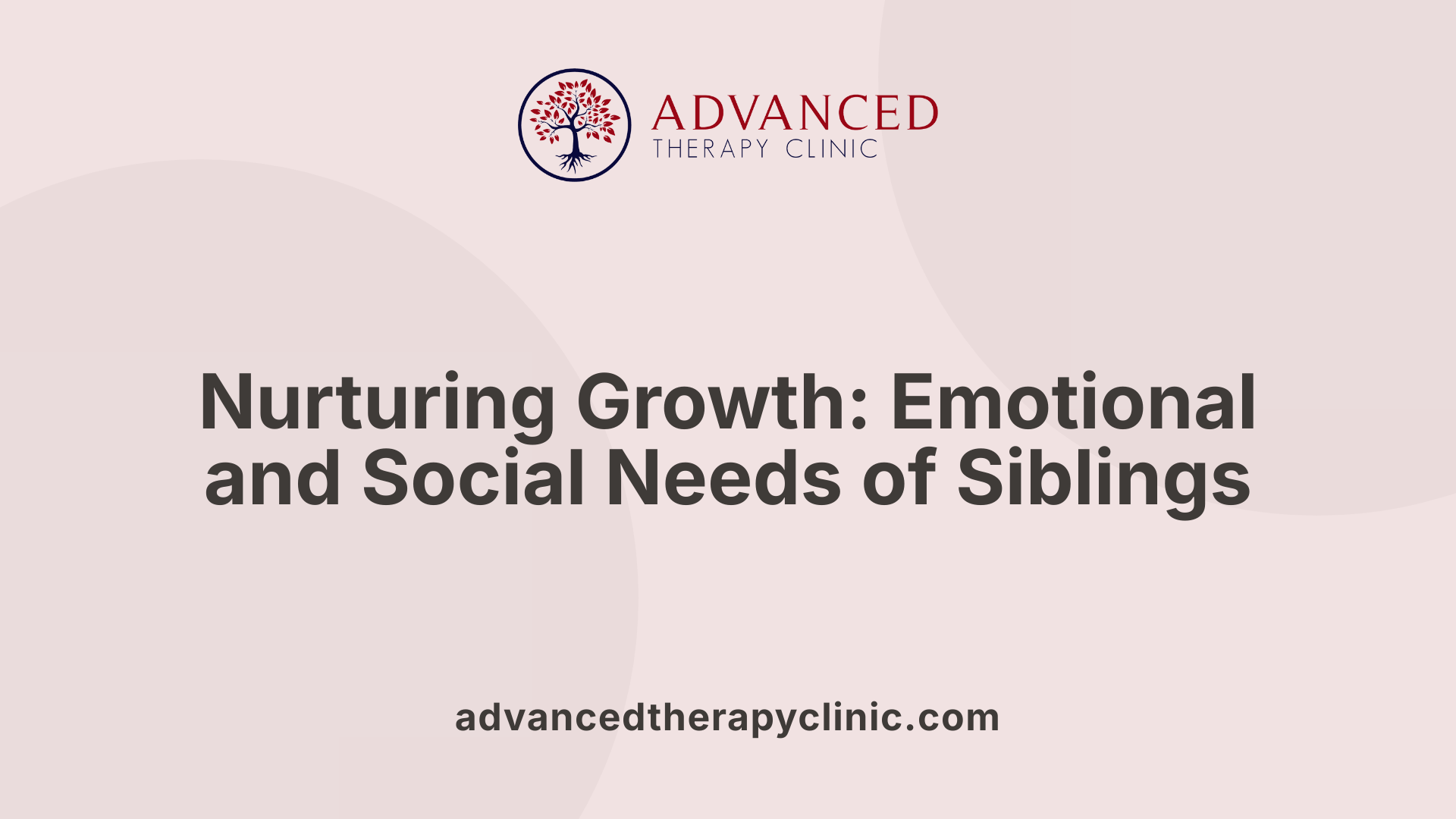
What are the emotional and social needs of siblings of children with disabilities?
Siblings of children with disabilities often face a wide range of emotional experiences. They may struggle with feelings of guilt, resenting unfair attention given to their disabled sibling, or feeling jealous of the time and energy their parents devote elsewhere. Sadness and confusion are common, especially as they try to understand their sibling’s condition and the changes it brings to family routines.
Emotionally, these siblings might experience moments of love and pride for their brother or sister, but also feelings of frustration or helplessness when faced with their sibling's behavioral challenges, such as aggression or impulsivity. They may internalize their emotions, leading to stress, anxiety, or even depression.
Socially, these children often encounter difficulties in peer interactions. They might worry about being misunderstood or feel isolated if they believe others don't understand their situation. Feelings of neglect or being entirely overlooked because of the family’s focus on medical or treatment needs can intensify these challenges.
Despite these struggles, many siblings develop important positive qualities. They often become more empathetic and resilient, learning to manage complex emotions and advocate for their sibling’s needs. Their social skills and emotional intelligence can improve through shared family activities, participation in support groups, or programs like Sibshops, which focus on fostered understanding and peer connection.
Creating a strong, supportive family environment is critical. Open communication—where siblings feel safe to express their feelings without judgment—is vital for their emotional health. It’s essential that parents validate these emotions, provide age-appropriate explanations about their sibling’s condition, and involve children in caring activities if they are willing.
Support programs and community resources play a vital role. Support groups, both local and online, offer a space where siblings can connect with peers who understand their experiences. These platforms help them realize they are not alone, reduce feelings of isolation, and enable sharing of coping strategies.
In summary, addressing the emotional and social needs of siblings involves a combination of family support, open dialogue, and participation in targeted programs. Fostering an environment that recognizes each child’s individuality, encourages shared activities, and promotes understanding can significantly enhance their well-being. Supporting siblings’ emotional health ensures they grow into confident, compassionate individuals capable of managing their feelings and advocating for their needs and those of their sibling.
Counseling and Psychosocial Support Strategies for Siblings
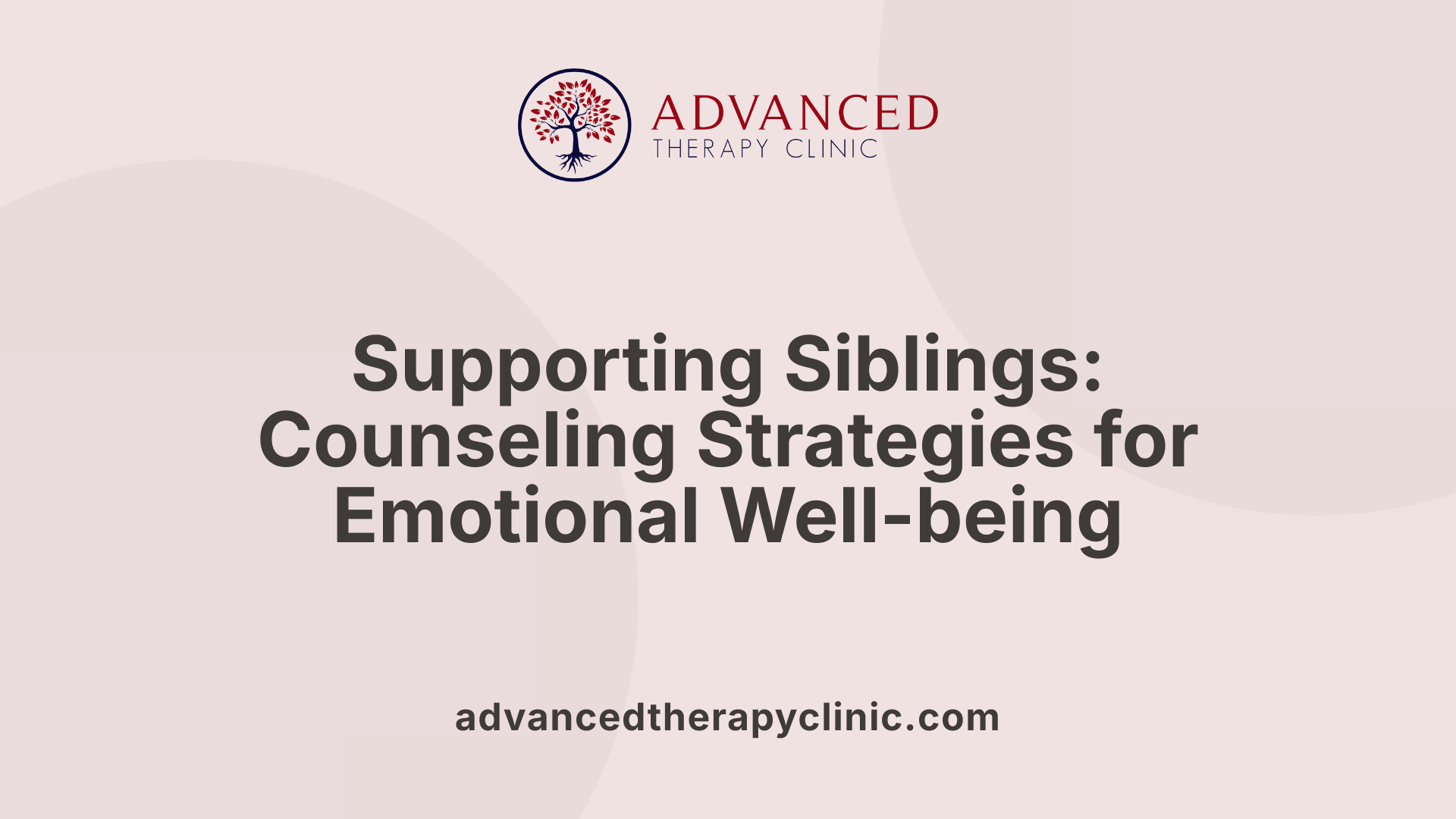
What counseling and psychosocial support strategies are available for siblings of children with disabilities?
Supporting siblings of children with disabilities involves a variety of counseling and psychosocial intervention strategies designed to improve their emotional adjustment and strengthen family bonds.
Psychosocial interventions such as psychoeducation play a vital role. These programs help siblings understand their brother or sister’s condition using age-appropriate materials, reducing confusion and fostering empathy. Social skills training is also beneficial, as it equips siblings with tools to navigate peer interactions confidently and develop supportive relationships.
Family-based cognitive-behavioral programs can address specific emotional challenges, teaching siblings how to manage feelings like frustration or guilt, and enhancing resilience. These group or individual therapies often focus on building self-esteem, improving communication, and reinforcing positive family dynamics.
Parents can support their children by creating shared activities that promote bonding, such as game nights or collaborative arts. Encouraging open dialogue about feelings and questions helps siblings process their emotions healthily. Ensuring each sibling has dedicated one-on-one time underscores their individual value and addresses their unique needs.
Community and peer support are equally important. Organizations like Siblings Australia and online forums provide opportunities for siblings to share experiences, seek advice, and find camaraderie with peers facing similar challenges. Local support groups often facilitate face-to-face or virtual meetings, which can help reduce feelings of isolation.
Professional mental health services—such as psychologists, counselors, or family therapists—are crucial, especially when siblings deal with significant stress, anxiety, or depression. Trained professionals can offer tailored strategies, including trauma-informed care or support during pivotal life transitions.
Combining these strategies forms a comprehensive approach that nurtures siblings’ emotional well-being, encourages understanding, and fosters resilience within families.
| Strategy | Description | Benefits |
|---|---|---|
| Psychoeducation | Age-appropriate information about the sibling’s disability | Reduces confusion, fosters empathy |
| Social skills training | Developing communication and social interaction skills | Enhances confidence and peer relationships |
| Family-based CBT | Addressing emotional responses and coping | Builds resilience, improves family harmony |
| Shared activities | Family bonding routines | Strengthens sibling bonds |
| Open communication | Encouraging honesty about feelings | Promotes emotional expression and understanding |
| Peer support groups | Connecting with others in similar situations | Reduces isolation, offers understanding |
| Professional therapy | Counseling with psychologists or counselors | Tailored emotional support and coping skills |
More support options and resources
Many organizations advocate for sibling support by providing workshops, online communities, and educational materials. For example, the Sibling Support Project offers programs like Sibshops, which are designed to create a fun, supportive environment for brothers and sisters to share experiences and learn coping skills.
Online platforms like SibNet, Sib20, and SibTeen facilitate connections among siblings of various age groups, offering a sense of community and shared resilience.
Organizations also emphasize the importance of advocacy and inclusion. They guide siblings in becoming effective advocates for their brothers and sisters and encourage participation in policy and community initiatives.
In conclusion, a blend of psychosocial interventions, parental involvement, community engagement, and professional mental health support creates a robust framework to help siblings navigate the complex emotions associated with growing up alongside a disabled sibling. These strategies help build resilience, foster understanding, and promote a family environment where every child’s emotional needs are acknowledged and supported.
| Aspect | Description | Resources |
|---|---|---|
| Psychosocial Interventions | Psychoeducation, social skills, family-based therapy | Siblings Australia, local therapists |
| Family Support | Shared activities, one-on-one time, open communication | Family planning guides, counseling |
| Community Support | Peer groups, online platforms, advocacy organizations | Sibshops, SibNet, Sibling Leadership Network |
| Professional Help | Psychologists, counselors, mental health services | Local clinics, school counselors |
Supporting siblings requires a comprehensive, compassionate, and informed approach, ensuring they feel valued, understood, and equipped to thrive despite challenges.
Support Programs and Resources for Siblings
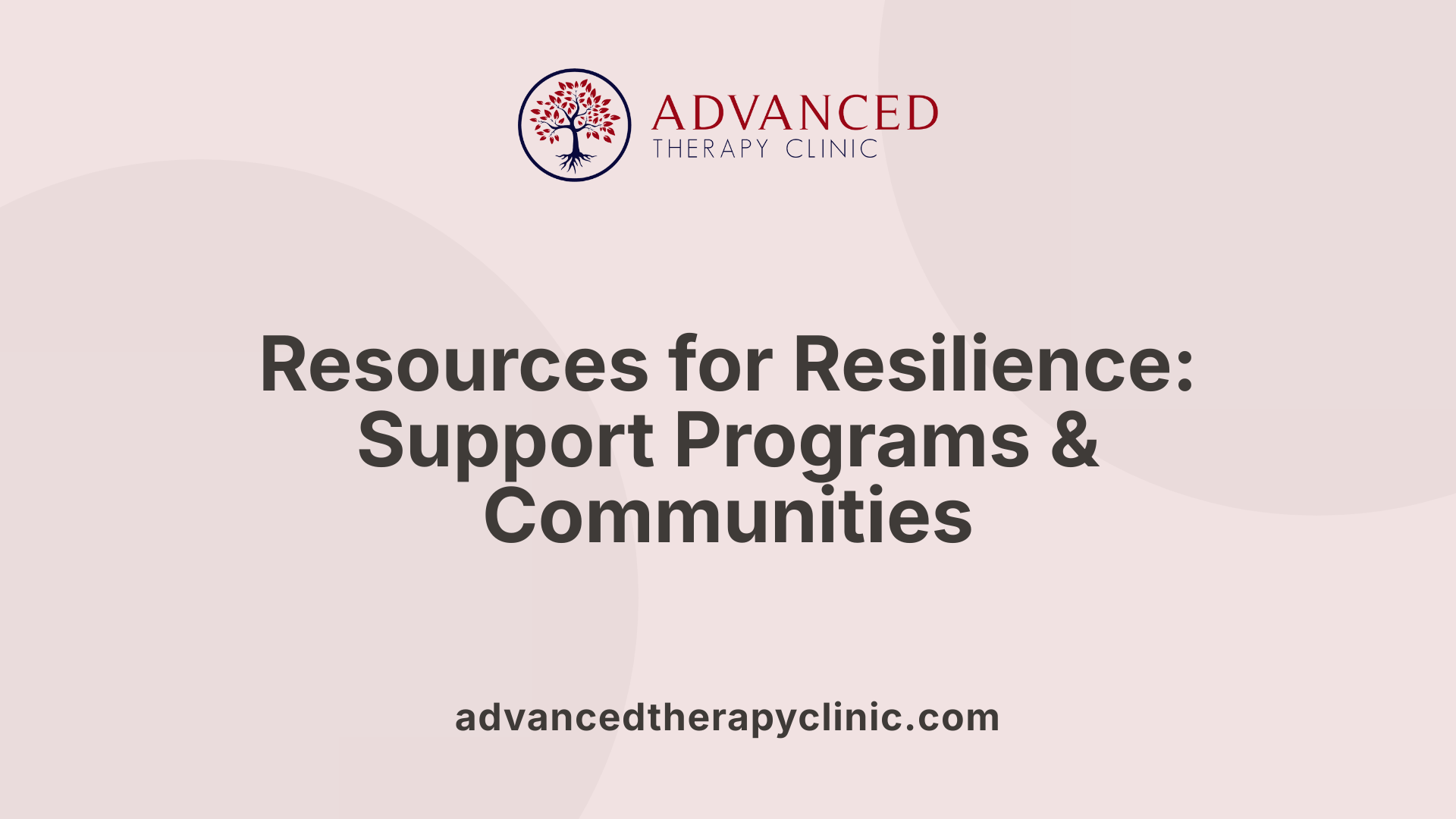
What types of counseling and support programs are available for siblings of children with disabilities?
There is a wide array of support options designed specifically for siblings of children with disabilities, focusing on emotional support, education, and advocacy. The Sibling Support Project, established in 1990, is a prominent organization that provides peer support groups called 'Sibshops.' These lively, activity-based gatherings are tailored for school-age siblings, fostering a fun environment where they can share experiences, learn, and build resilience.
In addition to Sibshops, the project offers facilitator training and online communities, such as SibNet—a social platform launched in 1996—that allow siblings to connect virtually, regardless of geographical barriers. Specialized groups facilitate monthly meetings for siblings of children with autism spectrum disorder during in-person or virtual sessions.
Organizations like The Arc complement these efforts by providing educational materials, webinars, fact sheets, and advocacy opportunities. They focus on helping siblings understand their brother or sister's condition, encouraging future planning, and nurturing advocacy skills through programs like the Center for Future Planning.
Support groups that cater to specific conditions, such as autism or neurodevelopmental disorders, enable siblings to openly discuss their concerns and emotional challenges. These groups may be led by professionals or trained facilitators and often include social activities, educational Workshops, and community events like National Siblings Day, which celebrate sibling bonds and promote awareness.
Furthermore, community organizations and healthcare providers host events such as Lunch & Learn sessions and family outings that serve to deepen understanding and strengthen familial bonds. Many services are now offering virtual support, including online webinars, phone chats, and psycho-educational sessions—making assistance accessible even during times of social restrictions.
Overall, these programs aim to empower siblings by informing them about disabilities, fostering peer connections, and encouraging positive family dynamics. Whether through in-person groups, online platforms, or community events, siblings find valuable resources that help them cope with their unique family roles and develop their skills.
| Program Type | Focus Area | Delivery Method | Notable Features |
|---|---|---|---|
| Sibshops | Peer support, activities | In person & online | Fun, activity-based events, facilitator training |
| Webinars & Fact Sheets | Education, awareness | Online | Accessible resources, expert-led sessions |
| Online Communities | Peer connections | Web platforms | Support networks like SibNet and Sib20 |
| Condition-specific Groups | Emotional support | In person & virtual | Autism, neurodevelopmental disorders focus |
| Community Events | Family bonding, education | In person & virtual | National Siblings Day, Lunch & Learn |
| Support & Advocacy Networks | Future planning, rights | Online & in person | The Arc's programs, Sibling Leadership Network |
These diverse offerings ensure that siblings can access tailored support suited to their age, conditions, and emotional needs, ultimately fostering resilience, understanding, and stronger family bonds.
Addressing Siblings’ Concerns and Building Empathy

What concerns do siblings of children with disabilities typically have, and how can these be addressed?
Siblings of children with disabilities often face a variety of emotional and practical worries. They may be anxious about what the future holds for their brother or sister, especially regarding who will care for them as parents age or are unable to provide support anymore. Feelings of jealousy or resentment can emerge when siblings perceive unequal attention from parents or caregivers. Some may struggle with guilt, feeling responsible for their sibling’s condition or embarrassed by their sibling’s behaviors in social settings.
In addition, siblings may experience a sense of neglect or feel overlooked, leading to feelings of loneliness or emotional distress. These challenges can cause them to feel confused, anxious, or even develop negative self-perceptions. Addressing these concerns involves creating an environment of open, honest, and age-appropriate communication. Parents and caregivers are encouraged to talk with siblings about their feelings and answer questions honestly while reassuring them of their unique value within the family.
Involving siblings in family planning and care strategies can help them feel more included and confident about their role. Programs like Sibshops and peer support groups provide spaces where siblings can share their experiences with others facing similar situations, reducing feelings of isolation and promoting resilience.
Support from community resources such as family therapy, social support groups, and online communities can also alleviate worries. These platforms enable siblings to express their emotions freely, learn coping skills, and develop a healthier understanding of their sibling’s condition. When siblings feel valued, informed, and actively involved in family life, their emotional well-being improves, and they can better adapt to their changing family dynamics.
Strategies for Supporting Siblings and Fostering Empathy
One effective approach is encouraging shared stories and experiences. Listening to the personal narratives of siblings helps develop empathy and perspective-taking. Family activities that promote understanding, such as participating in caregiving or celebrating each other’s milestones, reinforce positive feelings.
Creating dedicated times for individual attention—like special outings or one-on-one conversations—helps siblings feel appreciated and recognized. Celebrating their achievements and strengths also boosts their self-esteem and sense of belonging.
Participation in community events and support groups further strengthens peer connections and reduces feelings of isolation. Many organizations, including the Sibling Support Project and the Sibling Leadership Network, offer resources, educational materials, and advocacy tools that empower siblings to voice their needs and participate in decision-making.
Therapeutic interventions can provide a safe space for siblings to process complex emotions like guilt, anger, or sadness. Family counseling and individual therapy sessions can teach healthy coping mechanisms and communication strategies.
The Importance of Building a Supportive Environment
Ultimately, fostering an inclusive and supportive family environment is central to sibling well-being. This involves balancing caregiving roles, ensuring equal attention when possible, and validating each sibling’s feelings. Encouraging siblings to engage in age-appropriate activities and hobbies outside the family context further supports their personal growth.
In summary, by recognizing and addressing their concerns through open dialogue, community involvement, and therapeutic support, families can help siblings develop resilience, empathy, and a positive outlook despite the challenges they face. Supporting siblings not only benefits their emotional health but also strengthens the entire family’s cohesion and future readiness.
Promoting Empathy and Recognizing Shared Experiences
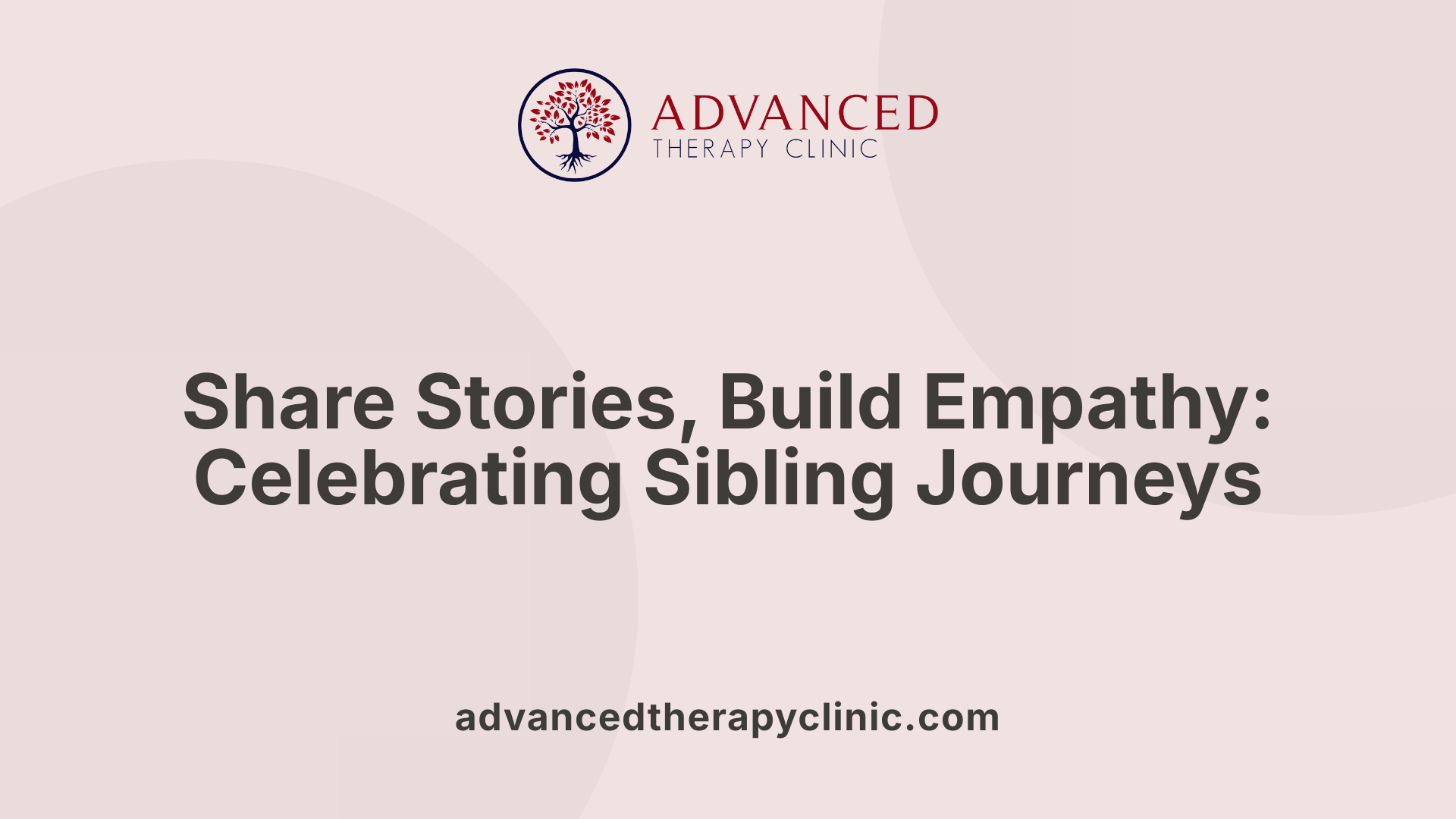
What stories and experiences do siblings of children with disabilities share, and how can these promote empathy and understanding?
Siblings of children with disabilities often share unique stories filled with compassion, resilience, and a deep understanding of family challenges. These experiences include daily routines altered by medical needs, moments of pride in their sibling’s achievements, and feelings of frustration or jealousy that they might not openly express. Growing up in such environments, many develop emotional maturity beyond their years.
These shared life stories help build empathy as siblings learn to see the world through their brother or sister’s eyes. Their involvement in caregiving activities, such as helping with daily routines or participating in therapy sessions, encourages perspective-taking. When siblings understand the implications of their sibling’s condition, they become more compassionate and supportive.
Open dialogue within the family about these experiences often fosters a sense of shared understanding. Support groups and online communities contribute further by providing platforms to share personal journeys, exchange advice, and normalize feelings.
Encouraging siblings to recount their stories in safe spaces enables them to process complex emotions like guilt, worry, or pride. These narratives not only promote empathy but also affirm their important role within the family unit.
How shared experiences can strengthen family bonds
Shared experiences create a fabric of memory and mutual understanding that strengthens family ties. When siblings participate in family activities that consider everyone’s needs, they develop trust and solidarity.
Celebrating milestones, such as birthdays or academic achievements, with acknowledgment of each sibling’s journey, fosters mutual respect. Engaging in joint activities that promote teamwork and empathy, like family outings or collaborative projects, deepens emotional connections.
Perspective-taking activities and involvement in caregiving
Activities that involve role reversal or empathy exercises, like ‘a day in the life’ simulations or storytelling, enhance siblings’ understanding of their brother or sister’s perspective. Involving siblings in simple caregiving tasks or decision-making processes makes them feel valued and competent.
It is important to tailor these activities according to age, ensuring they are meaningful without overwhelming the child. For example, younger siblings can practice patience through shared play, while teens might assist in planning activities or monitoring progress.
Building a supportive environment that values each sibling's role
Creating an environment where each sibling’s contributions are recognized promotes a sense of inclusion. Family celebrations should highlight individual achievements and special moments of all children.
Parents can foster this by regularly acknowledging each sibling’s efforts and milestones, whether related to academic, personal, or caregiving roles. Developing family traditions that include everyone helps reinforce their importance.
The importance of recognition and celebration of siblings' milestones
Celebrating milestones—like graduating, learning a new skill, or participating in a community event—solidifies siblings’ sense of belonging and value. These moments can be marked with special acknowledgments, certificates, or small gatherings.
Recognitions serve to boost confidence and resilience, helping siblings see their unique worth beyond their family support roles. Moreover, these celebrations remind families to focus on positive growth and shared joy.
In conclusion, sharing personal stories and engaging in empathy-building activities foster understanding among siblings, strengthening family bonds. Recognizing and celebrating each child's milestones affirms their roles and treasures their contributions, creating a nurturing environment of compassion and support.
Foster a Supportive and Inclusive Family Environment
Supporting siblings of children with disabilities through counseling and targeted interventions nurtures emotional resilience, enhances social skills, and promotes empathy. Ensuring open communication, creating shared experiences, and connecting families to community resources and advocacy platforms can significantly improve their well-being. As awareness increases and support programs expand, siblings are empowered to thrive alongside their brothers and sisters, fostering inclusive and compassionate families equipped to meet their diverse needs.
References
- How to Support Siblings of Children With Disabilities - Specially Gifted
- Sibling Support Project
- Siblings of People With Intellectual & Developmental Disabilities
- Facilitating support groups for siblings of children with ...
- Sibling Leadership Network | Siblings of people with disabilities
- Resources for Siblings of Children with Disabilities | ABC Law Centers
- Sibling Support - Focus-ga.org
Recent articles
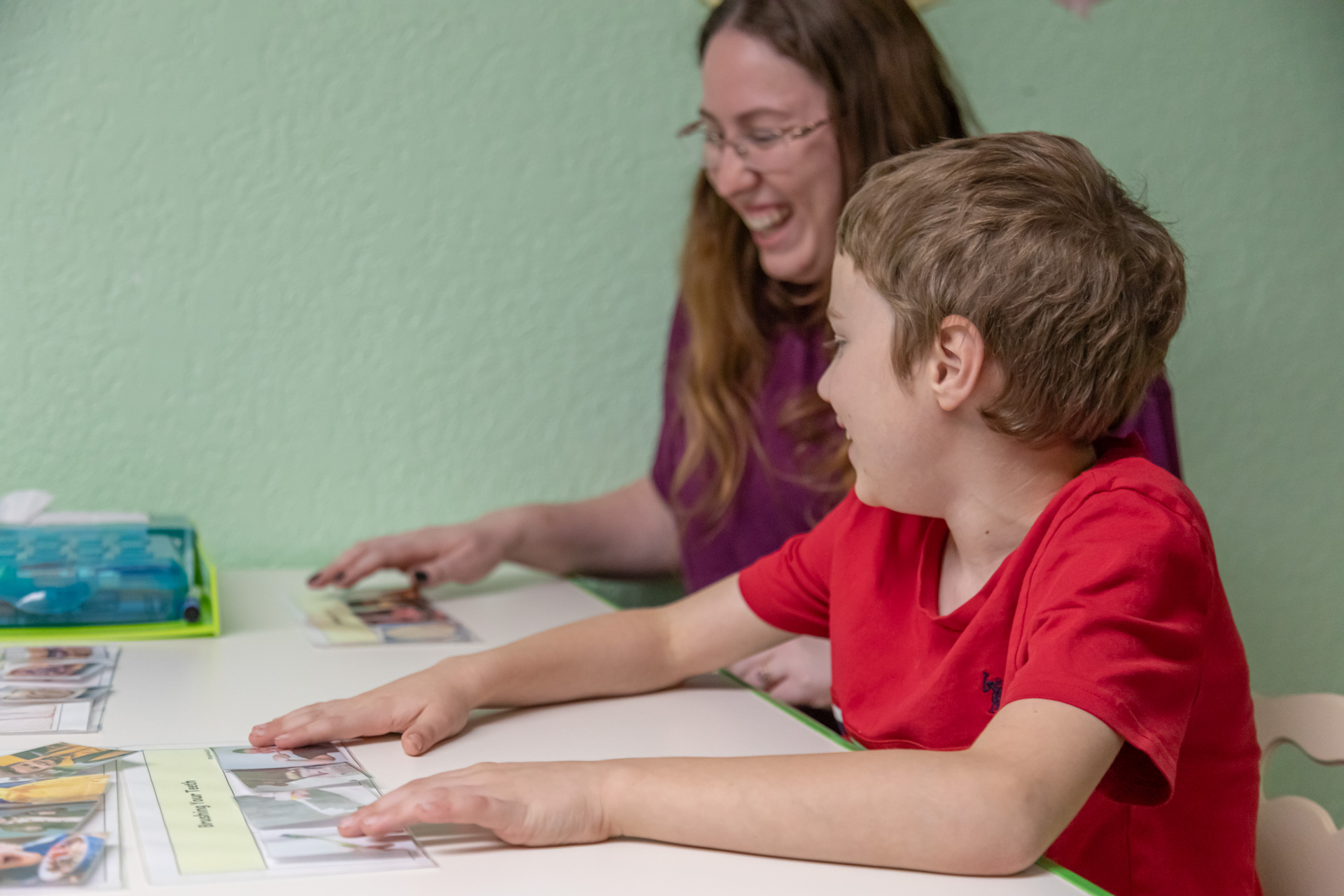
Celebrating Small Wins: How Therapy Helps Kids Build Confidence All Year Long
Learn why small wins in therapy matter, how they boost your child’s confidence, and simple ways families can celebrate progress all year long.

Empowering Missoula Children to Grow With Confidence and Connection
Learn how ABA therapy in Missoula helps children build communication, independence, and confidence through personalized, family‑centered support at Advanced Therapy Clinic.

Compassionate Pediatric Therapy in Butte, Montana
A welcoming place where every child’s potential is celebrated
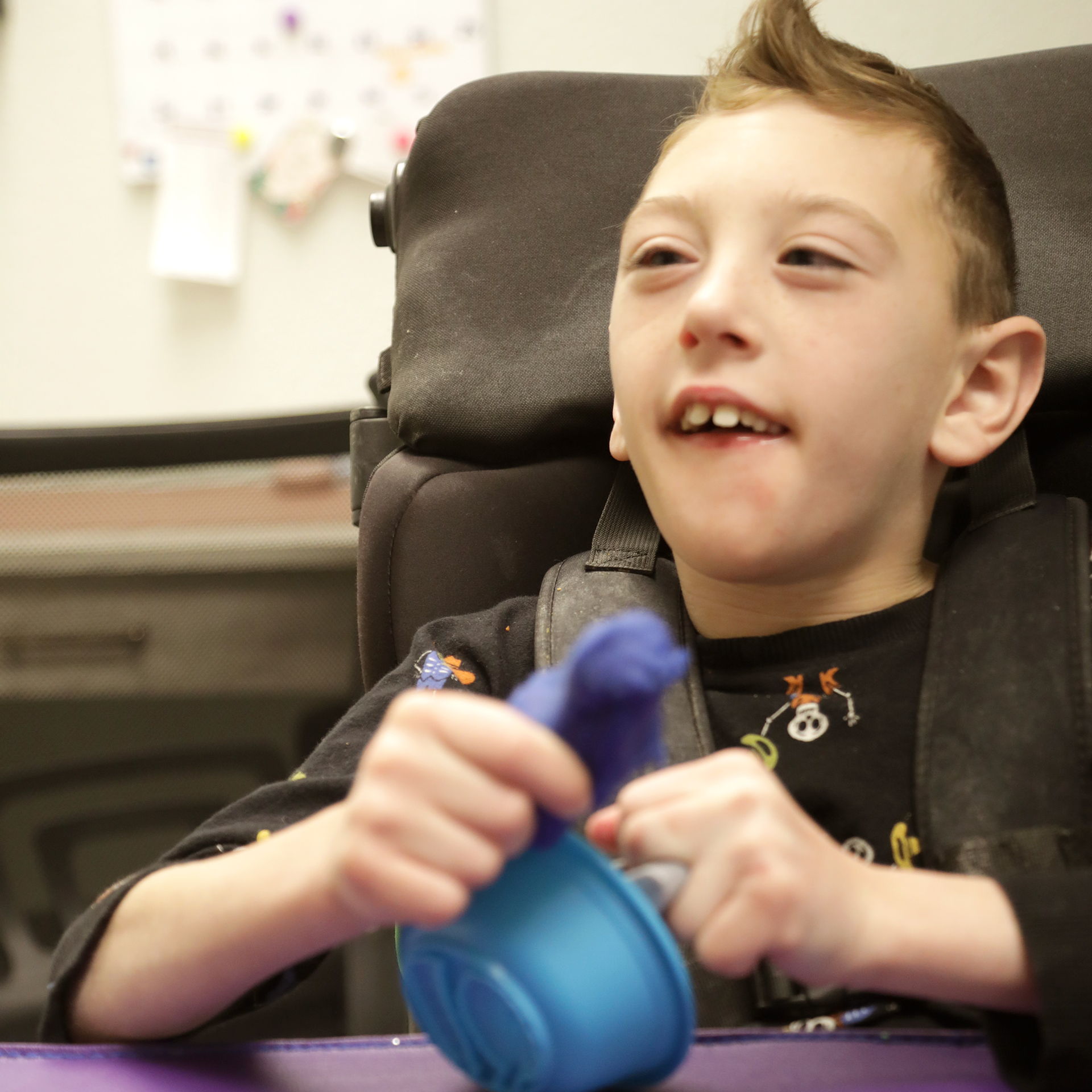
How Pediatric Therapy Helps Kids Thrive across Montana and Wyoming
A supportive guide for families exploring therapy options in Billings, Butte, Missoula or Sheridan.
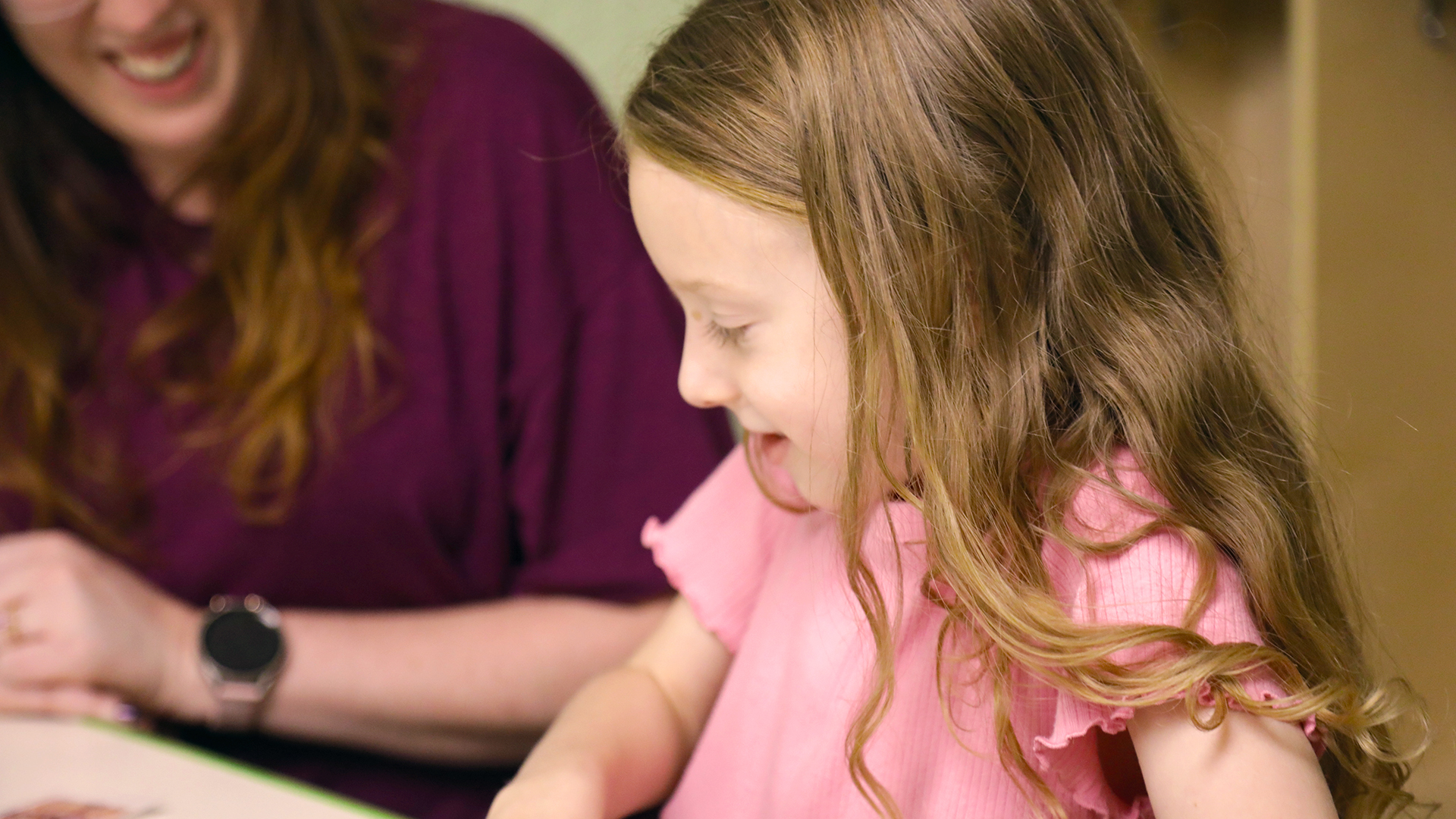
How to Choose the Right Pediatric Therapy Clinic in Billings, Montana
A Parent‑Friendly Guide To Finding The Best Support For Your Child
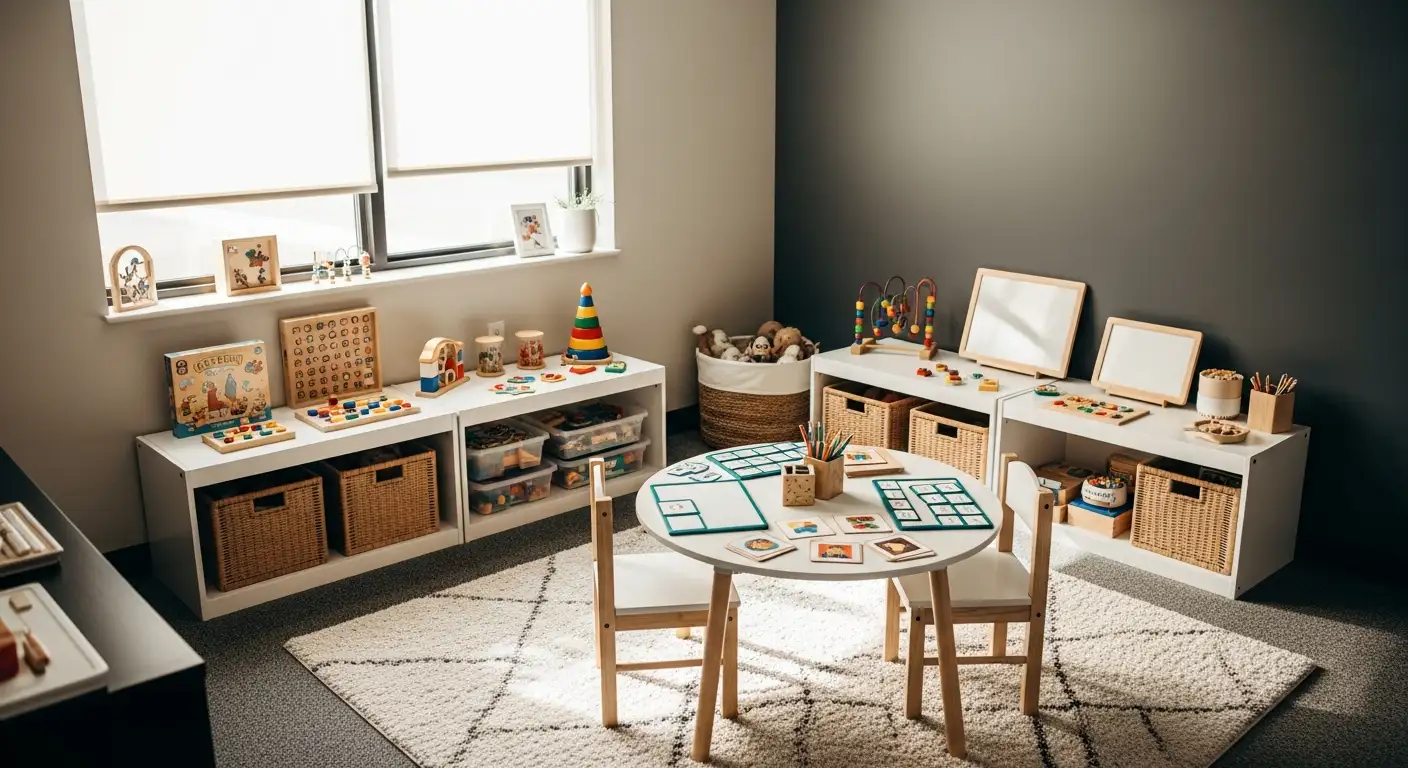
Expressive Speech Delay 2-Year-Old
Understanding and Addressing Expressive Speech Delay in Toddlers

